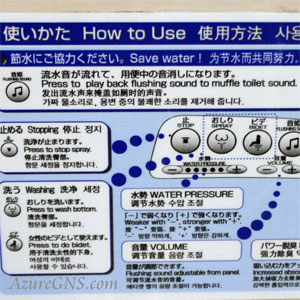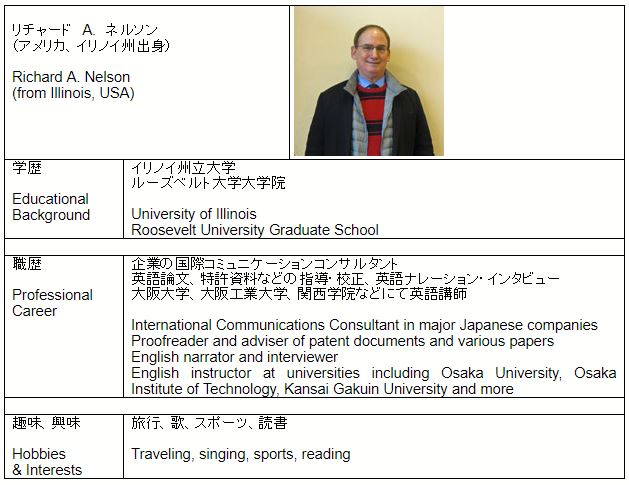今こそ変わろう

When I first arrived in Japan, I thought it was humorous to see funny and strange “Engrish” almost at every turn. It was a clear example of how I was truly living in another culture and there were many stories and experiences to be comically shared with my teaching colleagues.
These days, as Japan is struggling on how to exist in the globalized world, and with the clock tick-tick-ticking on the arrival of the Tokyo 2020 Olympics, it seems as though dramatic change is needed to foster updated English skills for Japan in the current century.

In my opinion, it is no longer a laughing matter that, according to many academic surveys, the only other country to have worse overall English-language skills in Asia is North Korea. What once brought chuckles and tales of silly stories is now a source of embarrassment and perplexity to this writer.
There have been major influences at work for quite some time in Japan that have contributed to this situation and housecleaning should be the order of the day if this country wants to effectively communicate with the rest of the world using the global language – English.
Let us start by making the first point perfectly clear: Japanese English is simply not on the same level as global English used by native speakers and should no longer be tolerated or labeled as acceptable in public displays.
As a corporate trainer, there have been countless times when I have appealed to the clients and managers in my classes to utilize the services of trained, experienced and knowledgeable native English trainers. It boggles the mind to think that many Japanese companies are insisting on global standards with regards to Sales, Quality, ISO, Production, Research and other areas but few have little concern with regards to upgrading and demonstrating their global English usage in their business practices.

How many times can we see products on a daily basis that exhibit strange “catch phrases”, incorrect spelling, inappropriate grammatical patterns and the like only to be dismissed as “acceptable applications of English” by company representatives. True corporate competitiveness should include all areas of business practice for ultimate success on the global playing field.
The next area that needs a major overhaul is the training and teaching methodologies of English in the Japanese schools.
English is different from other subjects of study as language practice requires activity, participation and reality applications for efficient and confident competence of its learners. Students sitting at a desk passively listening all day to a teacher of often questionable teaching and language skills, students being endlessly drilled and many times having to memorize obscure and unnecessary vocabulary and phrases, students not being taught Western-style communication strategies and also not having the opportunities to use those strategies in discussions or active role-playing situations – need I say more?
Schools need to train teachers on up-to-date English teaching methods, students need to have increased and regular contact with native instructors and English, as I see it, should be an optional form of study in the upper grades where teachers can spend more quality time with globally-minded students who are sincerely interested in actively developing their English skills and also have the capabilities for developing their global English skills.

The last and surely not the least area of change that needs to take place, and this is a delicate and tricky matter, is the attitude of Japanese learners with regards to the fear of not only communicating with foreign speakers of English but also being preoccupied with the number of mistakes being made during those communication opportunities. In this case, there are two situations to be looked at.
Learning sessions, to begin with, are the times when the emphasis on four-skill language development should be the focus. And of course, mistakes are going to be made, possibly time and time again. The learner needs to realize that mistakes are opportunities for skill development and growth. Hundreds and hundreds of mistakes can be made and should be expected as a result of active talk-time and participation.
Silence and passivity in the classroom do nothing for language skill growth and confidence awareness; if someone wants to learn a language, they must jump completely into the pool of language practice and realize that English is difficult and any learning is always a work in progress that needs time and nurturing.

The second situation that needs to be addressed is that classroom learning must have outlets for reality practice where understanding, not perfect skills, should be the benchmark of learner satisfaction.
Opportunities outside of the classroom are a necessity where learners can put into practice the skills they have been working on. Using English social media, watching English television and movies, reading English materials from newspapers or the Internet, singing English songs at karaoke, and of course, having contact with native English speakers are all ways that learners can change their mindset from a person of passivity and low esteem to a confident and proficient user of English in the world.
Too many excuses have been made for far too long. Let us realize the value of having global English skill levels, let us change our educational methods to develop the next generation of English speakers who not only effectively use English but enjoy using English and let us, once and for all, realize that the true reason we use a language is as a communication tool for addressing people from other walks of life.
Mistakes take a back seat when it comes to establishing understanding and trust with foreign individuals. Make the time and use the time whenever possible to increase the mind and endless opportunities for using English.


